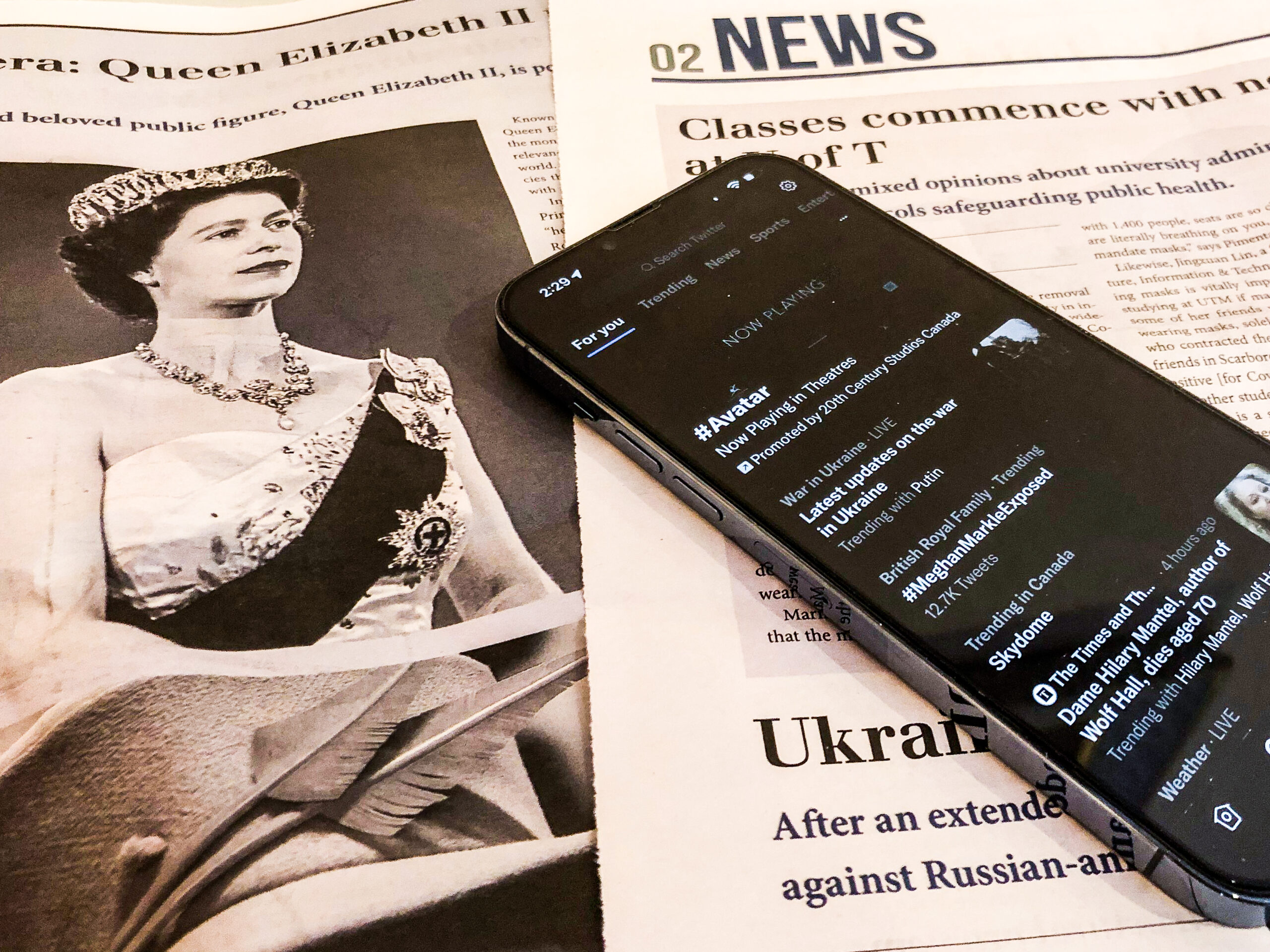Queen Elizabeth II: Friend of Canada or friend of colonialism?
To forget the monarchy’s contributions to colonialism is equivalent to forgetting the massacre of thousands of Indigenous Peoples.
When Queen Elizabeth II passed on September 8, 2022, my social media feeds were flooded with pictures and quotes, filled with expressions of admiration, appreciation, shock, and sadness. I was tolerant of, albeit confused, by the outpouring of grief, care, and empathy for a stranger whose value to Canada was purely symbolic and almost overdue, at the age of 96.
When I signed up a few days later to write this article, the sentences I began composing in my mind were mostly neutral in tone. However, when Toronto Public Library announced a few days later that they would observe 96 seconds of silence on Monday, September 19—one second for every year of the Queen’s precious life—my jaw dropped. Over the past year, more than 1,800 unmarked graves have been identified—either as confirmed or suspected—across the sites of four Canadian Residential Schools. That’s more than 1,800 precious children’s lives, lost. Not once did we ever think to have 1,800 seconds of silence for them.
It is easy to be neutral about whether or not you could, or should, mourn the death of Queen Elizabeth II (and, just to get this out of the way, no one is stopping you from mourning her if you feel moved to do so), but it is impossible to retain a neutral stance towards the massacre of Indigenous children that occurred in Residential Schools. Within these schools, children were assaulted, abused, and malnourished. Many disappeared from their families, leaving their loved ones confused. The disappearance of Indigenous children, after being promised an education for their futures, is gut-wrenching.
To strip the Indigenous Peoples of their languages, cultures, and beliefs, colonizers used helpless, frightened, Indigenous children as pawns in their twisted ploy for cultural genocide. Innocent Indigenous children were killed to rid colonizers of any difficulties in their inhumane scheme of eliminating diversity. In one Residential School, death rates were reported to be as high as 69 per cent. These schools were funded by the federal government, and many Catholic and Anglican churches. In other words, the Crown was complicit. The legacy that British settlers left behind—the same legacy Canada seeks to acknowledge and maintain through its ties to the Crown—is rampant with trauma and abuse for Indigenous Peoples.
Britain has been complicit in the colonization and forced assimilation of Canada’s Indigenous Peoples. And while the recently passed Queen’s autobiographies and memorials may not acknowledge her support for these initial settlers or with Residential Schools, it still happened. She spent all 96 years of her life perpetuating and celebrating the far-reaching and damaging effects of British power and, thus, colonialism, racism, and classism. Can her 70-year reign be called great if her empire was built on the blood of Indigenous Peoples? Is her friendship with Canada as a Commonwealth country worth celebrating when her connection to us is through mass genocide and slaughter?
Look, the Queen was in fact human, and thus her death is sad in the way that all deaths are sad—as a human being. There will never be another Queen Elizabeth Alexandra Mary Windsor, and if you wish to mourn that fact, it would completely be within your prerogative to do so.
But she was also only human, and while I’m sure she was an okay person, I can’t say that for certain, because I didn’t know her—none of us knew her, and no one is actually required to mourn a stranger after they die. After all, you might even hate these symbolic figureheads of a monarchy that has oppressed, massacred, and displaced Indigenous Peoples. And if you choose to attribute greater importance to that fact instead of all else the late Queen represents—well, I’ll join you on Friday, September 30 for the National Day of Truth and Reconciliation.
Copy Editor (Volume 50); Associate Arts & Entertainment Editor (Volume 49) — Maja Ting is in her third year at UTM, completing a Specialist degree in Forensic Biology. In her spare time, she reads, visits the ROM repeatedly, waits for public transit, talks and reckons more than is good for her, and refers to herself in the third person.


